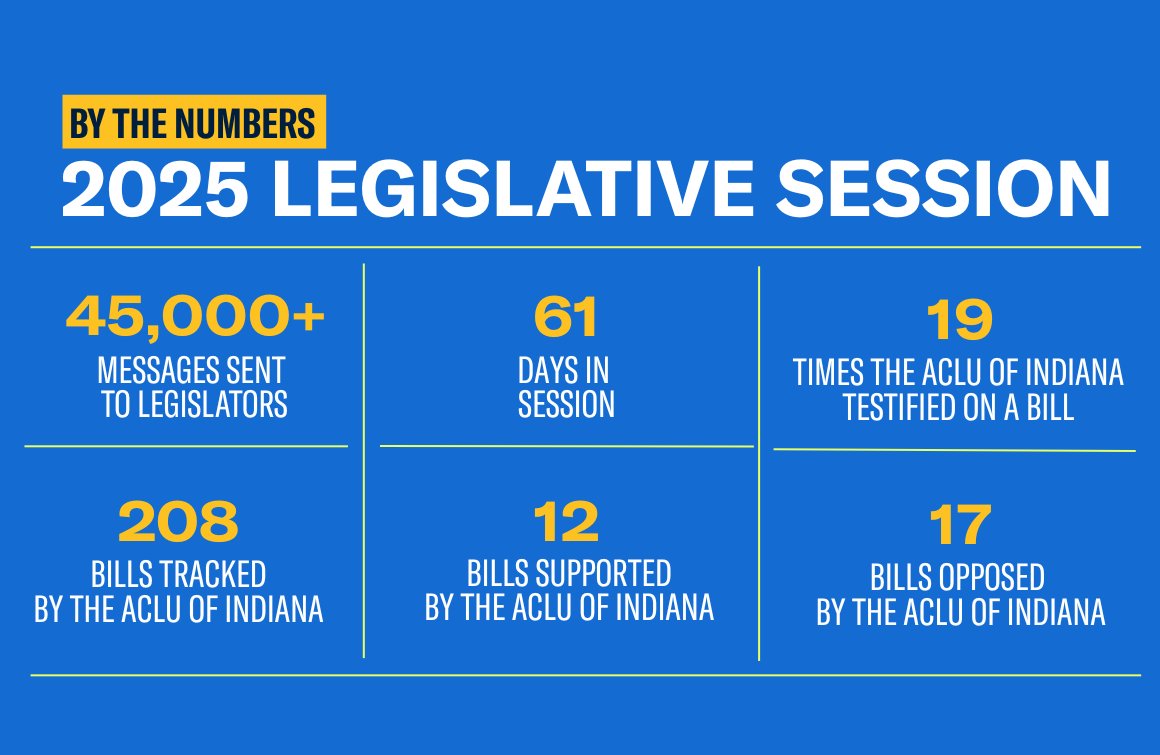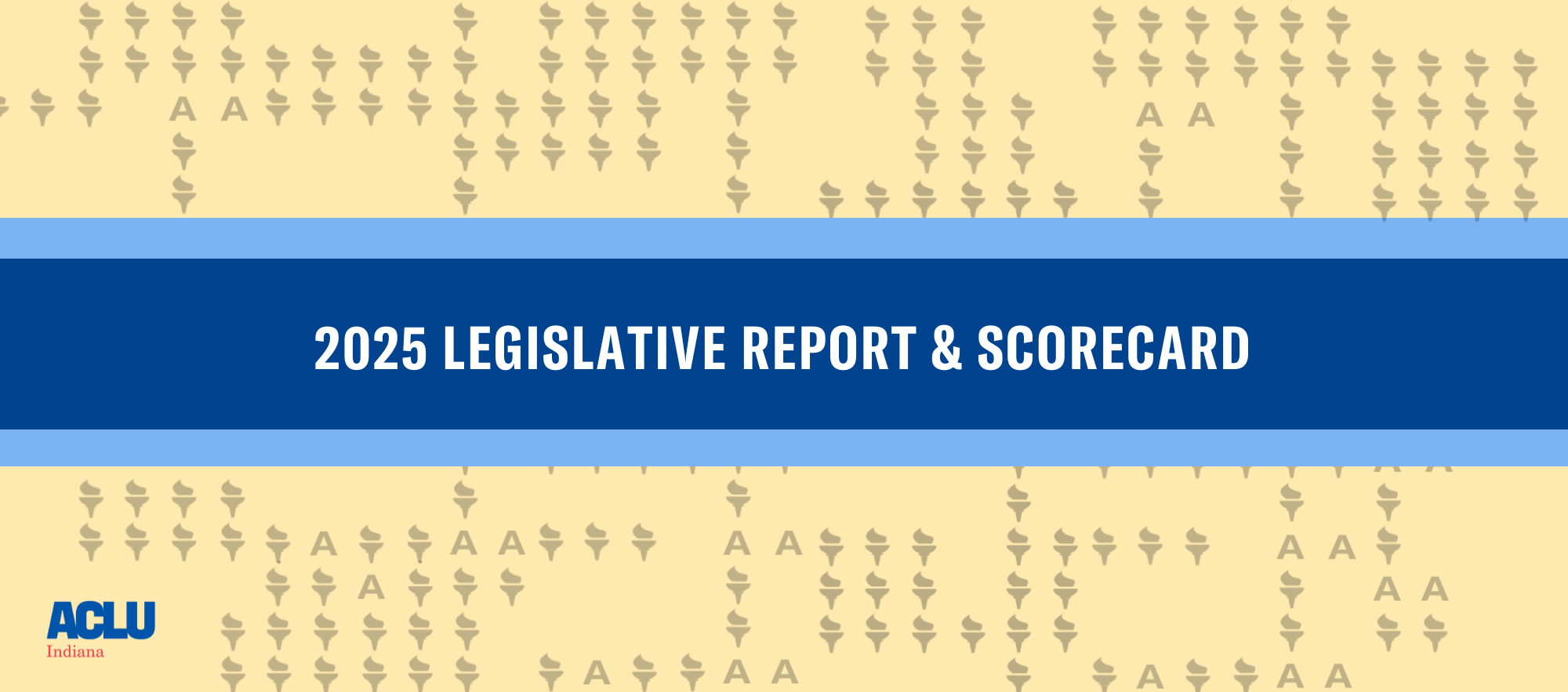
DEI Rollbacks. Police Mandates. Trans Sports Bans. Usurping Local Control.
Make no mistake: Indiana has entered its big government era.
The key message from the 2025 legislative session is clear: lawmakers know best. In fact, they know better than local police chiefs, sheriffs, educators, school boards, doctors, and even parents.
It sets a dangerous precedent when lawmakers strip authority from local governments in order to mimic the worst of national politics — eroding the very values they claim to uphold.
In the face of sweeping overreach and efforts to erode fundamental rights, the ACLU of Indiana, our partners and thousands of Hoosiers made their voices heard. While this was a tough year in many ways, there were also some bright spots, including the decriminalization of fentanyl test strips and other safety devices– a move that will no doubt save lives.
Click through below to read more about some of the bills that will soon become law and scroll to the bottom to see how your lawmakers voted on those bills. We’re also highlighting some bills that failed but that we anticipate will resurface in future years.
Bills to Watch in 2026 & Beyond
As anyone who has followed legislation knows, failed bills can always make a comeback. The ACLU of Indiana will be watching out for bills that are likely to return in the future – both good and bad.
One bill, HB 1662, which would have criminalized homelessness, failed in the 2025 session. Its language was then added as an amendment to two other bills before finally being removed. This was a hard-fought victory – one that advocates will likely have to keep fighting in the future.
Legislation that would allow chaplains to work in public schools was proposed in 2024 and again in 2025 as SB 523. It failed both times. This language would violate important constitutional principles separating church and state, and the ACLU of Indiana will be watching to see if it returns in 2026.
Among the good bills that may be proposed again is a repeal of Indiana’s sales tax on period products, HB 1042 and SB 173. Although these bills failed, advocates were hopeful when the tax was repealed in the first budget proposal. Ultimately, however, the tax was added back into the budget that passed and was signed into law. Because these products are a necessity, not a luxury, some lawmakers will continue to push for Indiana to join the 20+ states who have eliminated this unfair tax.
Other good bills that may return include a repeal of the death penalty, HB 1030, which enjoyed bipartisan support but did not receive a committee hearing, and driver cards for immigrants (HB 1224/SB 296) that would make Indiana streets safer.


